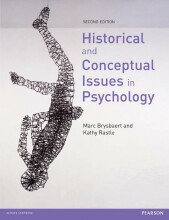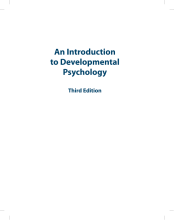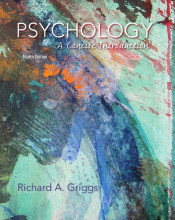Revenge of the rationalists
26 important questions on Revenge of the rationalists
Describe shortly how logical positivism works
- Theoretical sentences can still have meaning if you correspond them with observational sentences
- this correspondence goes according to correspondence rules
- the observational sentences are verified through sense data
- sense data are observations that do not have theory in them
- if the observational sentences are verified, the corresponding theoretical sentences are verified
What were the problems with logical positivism?
- observations are not neutral: theory-ladenness of observations
- theoretical concepts cannot be reduced to observations; concepts are open, if you make a new observation you recognize the concept so a concept isn't a summary of observations
- the induction problem blocks verification of scientific statements; you can never observe every situation an inductive statement includes
How did popper started his views on science?
- According to Popper there is something wrong with the theories of Adler, Freud, and Marx
- The explanatory power of these theories were huge, these theories can explain all facts
- This might sound as something wonderful...
- Popper, however, realizes: This is not a strength but a weakness
- if your theory is wrong there is not an observation that could prove this.
- Higher grades + faster learning
- Never study anything twice
- 100% sure, 100% understanding
How did popper discover what is the essence of a theory and science by comparing theories of psychology and physics?
- Einstein posits the theory of relativity. This theory predicts that light deflects along a planet
- The solar eclipse of 1919 enables Arthur Eddington to test the prediction If the prediction didn't come true, this would proof Einstein's theory wrong
- So Einstein's theory excludes certain events. This is a strong theory exactly because it can not explain everything.
- If a theory is so specific about what to expect it's really strong if that what's expected turns out.
- if a theory explains everything it is uninformative because you'll never know if it's true.
How does popper solve the induction problem with his views on theories?
- theory-free observation is impossible, but is also not needed Induction is impossible: you cannot induce theories from observations.
- but induction isn't necessary because instead we can do deduction: theories can be used to derive predictions about observations!
- it doesn't matter how you got the theory as long as it is stated in a way that it can be tested.
Describe the hypothetico-deductive model
- Start with a theory
- Deduce predictions from theory
- Test these predictions
- If these predictions don’t come true: falsify the theory
- If they do come true: corroboration (is not verification!)
- corroboration means, the theory held against tests
Poppers philosophy has two phases, which are they and how are they distinguished
- Context of discovery; this is the theory developing phase which has no rules. There is no logic for theory development
- context of justification; this is the theory testing phase. There are strict rules for the logic of testing; modus tollens
How is popper a rationalist
- The logical positivists build on the tradition of empiricism
- In contrast, Popper builds on the tradition of rationalism
- After all, Popper's theories spring from the imagination
- This means that part of the content of our theories does not come from observation, but from the ratio
- contrasting with plato, popper didn't think knowledge from the ratio was certain but should be tested against observations
- poppers position is called critical rationalism
How do we call a criterion that is used to distinguish science from pseudoscience?
Describe the falsification criterion
- The falsification criterion says that statements or theories are scientific when they are in conflict with possible observations
- A theory is scientific only if the theory is falsifiable
Popper differentiates between degrees of falsifiability, describe these rules
- A more precise theory and a more general theory get more falsifiable
- this is the case because a more precise theory and a more general theory exclude more observations
- the more observations are excluded the more falsifiable the theory is. The more falsifiable a theory is the greater its informative content
How can a more specific theory be less falsifiable?
What is the difference between a precise theory and a specific theory?
- All women with blue jeans and brown hair, wear a red t- shirt
All women wear a red t-shirt and blue jeans and have brown hair - the first theory is very specific and excludes a lot of cases by creating conditions; it only holds for women that have x and y and z.
- the second theory is very precise, it doesn't exclude cases the theory is still about all women but create a very precise image
Describe why precise theories are more falsifiable with the t-shirt example
- A) All women wear a red t-shirt
- B) All women wear a red t-shirt and blue jeans and have brown hair
- All the observations that are conflicting with A also conflict with B, but those who conflict with B don't necessarily have to conflict with A
- therefor B is more falsifiable and is more informative
What is a problem of falsification?
- When you find observations that align with your theory it is hard to express what this does for your theory
- Popper cannot make a clear distinction between better supported and less supported theories
- At best, theories are “not yet refuted”
- Very soon it is noted that hard falsification is difficult
Describe the Quine-Duhem thesis and why it is a problem
- A theory is never tested in isolation, to test a theory you have to rely on certain assumptions about the measurement tools for example.
- If a prediction doesn't come true, it could be because of the theory... But, it could also be because something else is wrong. Wrong measurements, wrong tests, etc...
- If a theory cannot be tested in isolation, it will also not be rejected in isolation. Hard falsification is therefore impossible
- After all, you never know for sure whether your theory is false or something else is wrong
- The Quine-Duhem thesis is a structural problem for Popper
In what way do kuhn and popper differ?
- Popper's theory is normative; it describes how science should be done but he didn't really look at how science is actually done.
- Kuhn did look at how scientists do science. He searched for a pattern of rules that were followed by important scientists to see what ensures knowledge
How do we call a worldview including a system of theories, methodology, rules that we follow. It makes you observe the world in a certain way which you can't step out of, a certain way of thinking?
How do we call an observation that can't be explained within the current paradigm?
How do kuhn and popper and the logical positivists differ in the view on how science progresses?
- Popper and the logical positivists say that knowledge changes gradually. One finding builds the foundation for another finding, knowledge builds on itself
- Kuhn actually said that within a paradigm knowledge builds gradually. But when a paradigm shifts you don't build on the old paradigm. You start building something new.
Describe the stages of science by Kuhn.
- – Pre-science
- – Normal science I
- – Anomalies and crisis
- – Revolution
- – Normal science II
Is scientific progress possible according to Kuhn?
- Associated with Kuhn, relativism emerges
- There's actually no scientific progress, only within a paradigm.
- Because terms change meaning in theories, those theories are not even about the same thing
- In another paradigm you see another world
What was lakatos' role in the philosophy of science?
- Lakatos is a student of Popper who tries to save the rationality of science from both Kuhn’s relativism and Feyerabend’s anarchism
- Lakatos combines normative elements of Popper’s philosophy and descriptive elements of Kuhn’s philosophy
- Lakatos changes the notion of falsification to nuanced falsificationism
Describe nuanced falsificationism
- He realized that real falsification is rare and that researchers weren't constantly going to try to refute their own theories.
- though he did think that for a theory to possibly be falsified is a criterion to be part of science.
- There is still a role for falsification as demarcation, but it is not a descriptive principle
Describe how lakatos saw research programmes.
- There is a core statement dat your interested in. This core statement is part of a system (Q-D) of beliefs and assumptions that holds it up.
- you got two heuristics going on. Positive and negative heuristic
- negative heuristics attack the theory and the system. The positive heuristic pushes the theory forward by revising some of the system beliefs around the core.
- so whenever an observation is in conflict with the system (negative heuristic) then the system around the core is tweaked a little bit to make it fit again.
Which kind of research programs are there according to Lakatos?
- Progressive research programmes
- growth
- new techniques
- more facts
- in these programs your solving problems the program holds and works
- Degenerative research programmes
- shrinkage
- no new techniques
- no increase in facts
- at some point you can't really tweak the system enough to hold from the negative heuristics, it is stagnating
- Normative component: A rational scientist should stick with a progressive programme but abandon a degenerative programme
- two programs about the same concept are kind of racing to go forward, if one is going faster and the other is out of gas people should jump ship.
The question on the page originate from the summary of the following study material:
- A unique study and practice tool
- Never study anything twice again
- Get the grades you hope for
- 100% sure, 100% understanding
































